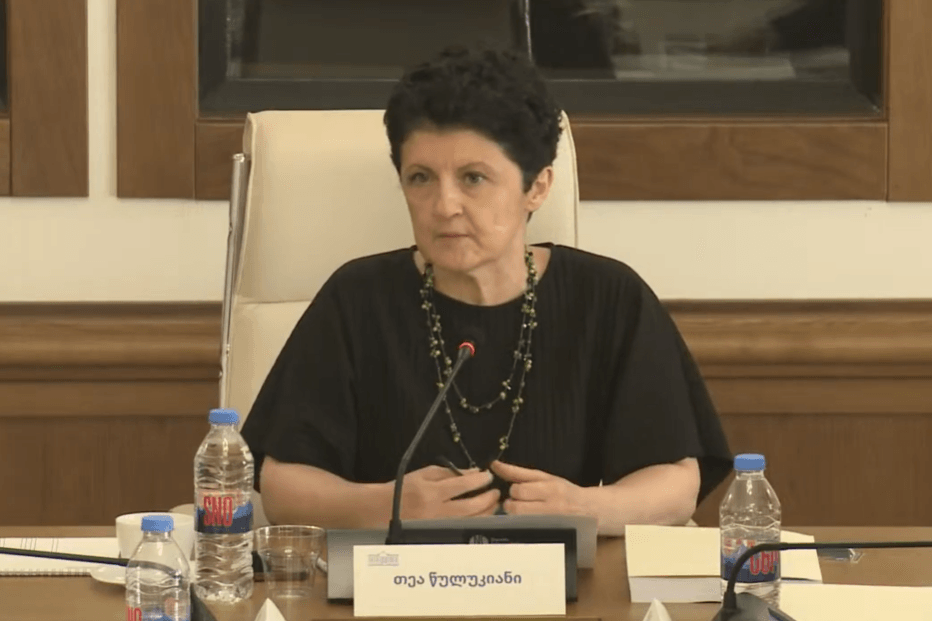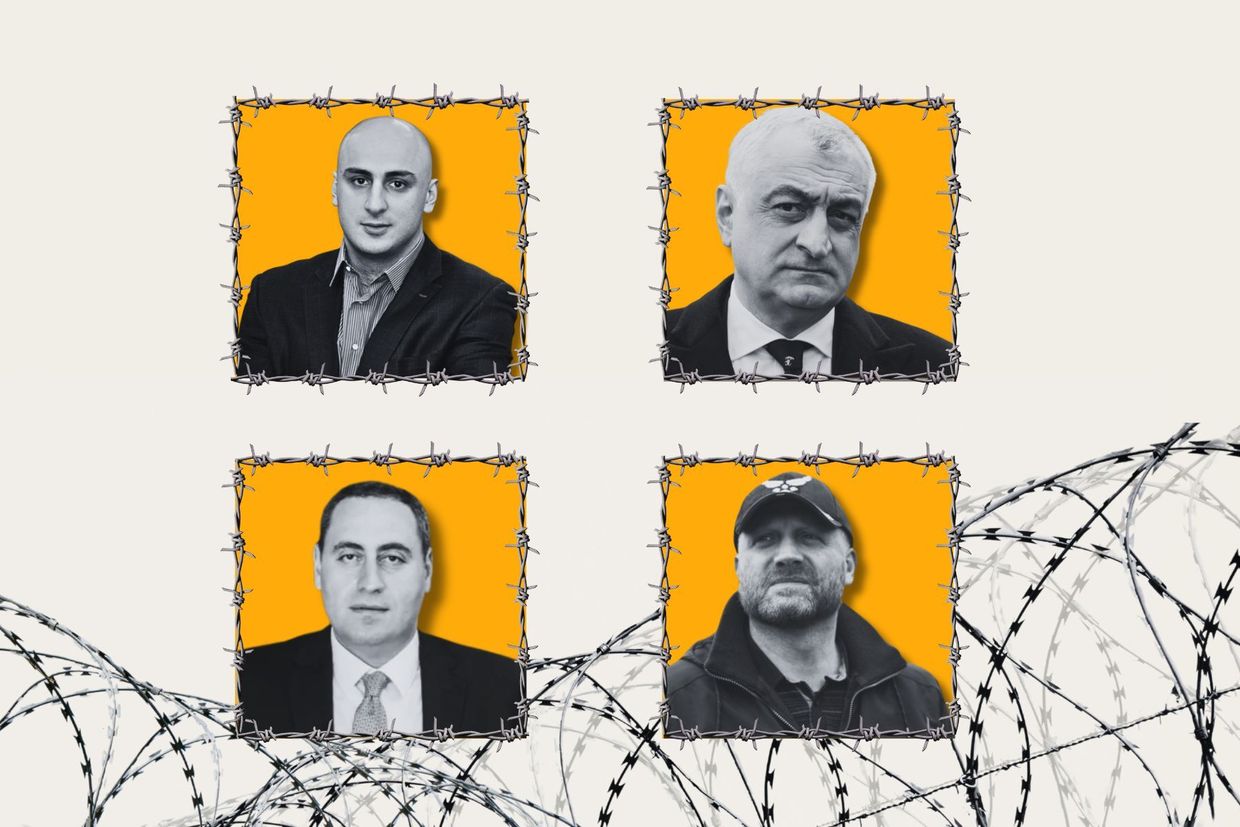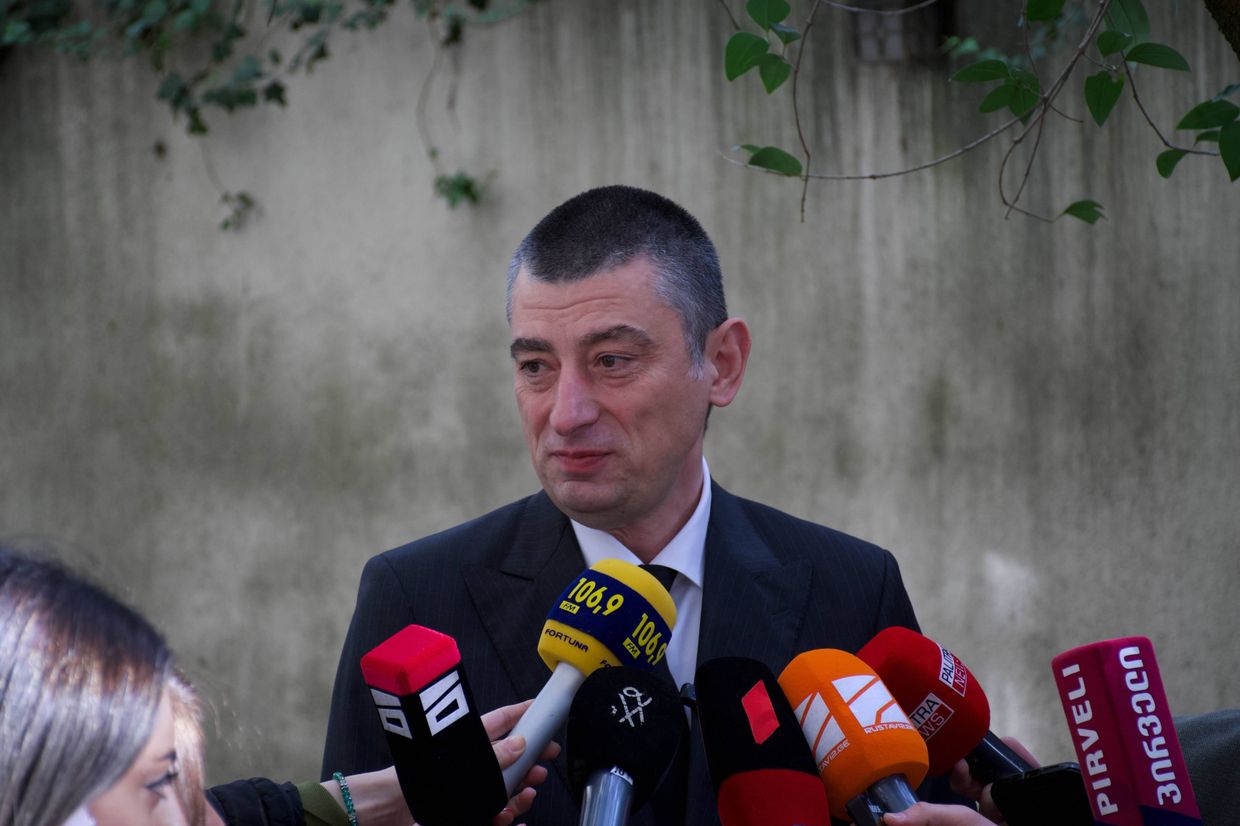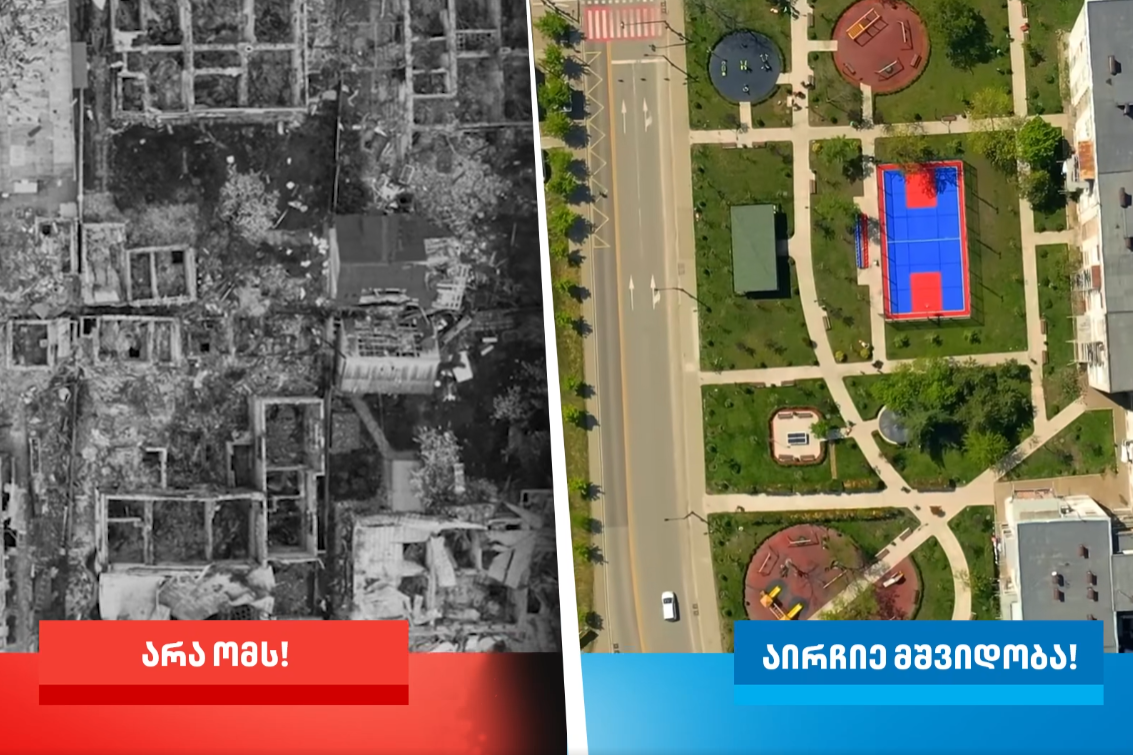Georgian Dream publishes 470-page report accusing Saakashvili of crimes and instigating 2008 war

Georgian Dream has published a 471-page report summarising the results of a parliamentary commission they created to investigate the formerly ruling United National Movement (UNM) party and other opposition groups. The ruling party has repeatedly said it intends to use the findings of the investigation to ban Georgia’s opposition groups.
The report was presented by ruling party MP Tea Tsulukiani, who headed the commission, on Tuesday.
It goes into great detail outlining alleged crimes committed by the formerly ruling UNM and its leader, imprisoned former President Mikheil Saakashvili. While the commission’s initial mandate was limited to its years in power (2003–2012), it was later expanded to cover the period up to the present day — effectively giving Georgian Dream free reign to target virtually any opposition figure.
At least six major opposition leaders have been jailed for refusing to appear before the commission.

In its foreword, the report claimed that the ‘radical opposition’ — a term the ruling party uses to refer to Georgia’s pro-Western opposition groups — has, since 2012, ‘been a decisive obstacle to the establishment of a healthy political system in Georgia’.
‘It should be noted that a significant part of society, due to their age, did not witness the crimes committed by the bloody regime of the [UNM]’, the report reads.
The commission based its report on official records, court decisions, government documentation, parliamentary materials, archival research, witness testimonies, and media archives.
It outlines how after Saakashvili and the UNM came to power in the 2003 Rose Revolution — which it refers to as a coup d’etat — arguing that the former government’s rule was marked by the politically motivated torture, inhumane treatment, and murder of prisoners, and acts of violence, rape, and muder committed by representatives of the party.
Among the report’s most controversial aspects is its insinuation that Georgia was responsible for provoking the August 2008 War, which critics argue downplays Russia’s responsibility for the war. Family members of fallen soldiers of the Georgian Army, as well as some current and former military personnel, have joined the criticism.
The conclusion of the report says it was ‘unequivocally clear’ that the Georgian army ‘found itself embroiled in a war directed by politicians far-removed from military affairs’.
‘These politicians, hoping for assistance from external forces whilst disregarding the opinions of Georgian military personnel, attacked the city of Tskhinvali [Tskhinval] and designated this very settlement as the primary direction of military operations.’
The report accuses Saakashvili and his government of acting against the peace process and violating Georgia’s territorial integrity. According to the report, the parliamentary commission determined that Saakashvili’s actions intensified tensions in the years leading up to the war, accusing him of creating a legal pretext for Russia to ‘violate Georgia’s territorial integrity in 2008’.
The report asserted that Saakashvili intended to take South Ossetia by force, citing a Shida Kartli official as quoting Saakashvili as saying that ‘the Americans will take care of the Russians’.
The report has also touched on former Georgian Dream Prime Minister and current opposition leader Giorgi Gakharia’s establishment of a checkpoint in Chorchana, near South Ossetia during his tenure as interior minister in 2019.
Gakharia is the only opposition leader to have agreed to attend the parliamentary commission’s sessions, albeit remotely. On Monday, he announced that he had no plans to return to Georgia, and that he would be based in Germany. Despite being under investigation under charges of sabotage and aiding and abetting hostile activities for the establishment of the checkpoint, Gakharia believes that Georgian Dream ‘does not have the resources’ to arrest him.

The report has additionally accused Saakashvili and his government of arbitrarily targeting people accused of espionage, treason, or of being Russian agents.
The report dedicated a section to the former government’s violation of the right to privacy through secretly and illegally collected videos, photos, recorded telephone conversations as part of a widespread campaign of illegal surveillance and eavesdropping on civil society members, leaders, opposition figures, and state employees.
The commission has also accused the UNM and groups or individuals associated with it of corruption, racketeering, and property violations, singling out TBC, a bank owned by opposition party Lelo leaders Mamuka Khazaraze and Badri Japaridze, as having participated in the UNM’s racketeering schemes.
Both Japaridze and Khazaradze are currently serving time for failing to appear before the commission.
The report said that prior to 2004, Georgia’s media landscape was ‘diverse’ and free until the UNM’s rule began. It accused the UNM government of ‘dominating the market and hijacking existing media outlets’ and of storming television stations with special forces and raids.

Not a single ‘politically peaceful year’ since 2012
The report heavily featured several hallmarks of Georgian Dream’s conspiracy theory-laden rhetoric.
In particular, it claimed that between 2012–2025, Georgia had to deal with ‘multiple attempts to violently change the constitutional order’ carried out by the opposition, funded NGOs, and foreign forces.
‘Because of this, since 2012, Georgia has not had a single politically peaceful year’, it claimed, adding that the situation had worsened since February 2022 — the beginning of Russia’s full-scale invasion of Ukraine — as Georgia was being ‘dragged into’ the war.
Georgian Dream regularly claims that the ‘radical opposition’ and a ‘global war party’ sought to force Georgia to open a ‘second front’ against Russia in the war. The ruling party heavily bases its campaign messaging on ‘choosing peace’, often visually juxtaposing the development of Georgia with war-torn Ukraine.

The report further alleged that the Coalition for Change and Strong Georgia — coalitions that have emerged ahead of the 2024 parliamentary elections — were ‘in full coordination’ with the UNM.
The commission alleged that the opposition ‘resorted to all measures’ to prevent Georgia from having visa-free travel with the EU or attaining EU candidate status.
The Georgian Dream government’s adoption of repressive legislation and its crackdown on pro-EU protesters have been a subject of criticism by the EU and the West. Brussels has repeatedly warned that Georgian Dream’s anti-Western trajectory was incompatible with EU integration.
In July, the EU’s top diplomat Kaja Kallas said the EU was sending a letter concerning the possible suspension of the country’s visa-free access to the bloc.
Georgian Dream has since been downplaying the importance of visa-free travel with the EU, with Prime Minister Irakli Kobakhidze claiming that Georgia’s economy would have grown faster without it.
As Tsulukiani presented the report on Tuesday, Georgian protesters, who had been protesting the government’s anti-Western policies and its suspension of the country’s EU membership bid since November 2024, gathered behind parliament to protest the anti-opposition commission.
At least 16 people were detained during the protest, with activists estimating that the number of detainees could be higher.
Both the commission’s work and other parliamentary activities — including the adoption of restrictive laws targeting dissent — have been carried out by Georgian Dream amid an opposition boycott of parliament, allowing the ruling party and its allies to exercise full control over the legislative body.







![Baia Margishvili standing in central Tbilisi with a sign reading: ‘The Prosecutor’s Office [is] a punitive squad. How many more innocent people will you put in prison?’ Photo: Mariam Nikuradze/OC Media.](/_next/image/?url=https%3A%2F%2Fassets.bucket.fourthestate.app%2Foc-media-prod%2Fcontent%2Fimages%2F2026%2F02%2Fcalls-for-sanctions-and-raids-19-10-25-48.jpg&w=3840&q=50)




